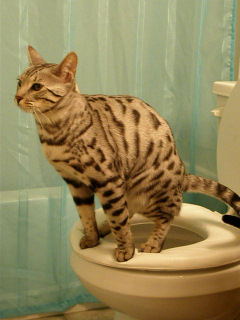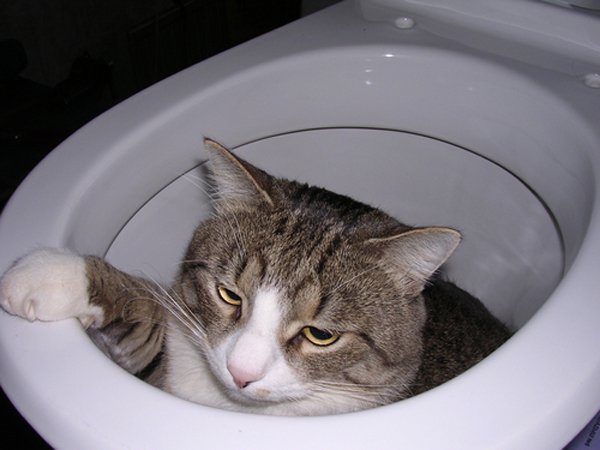Potential Issues of Flushing Cat Poop Down Your Toilet - Safeguard Your Plumbing
Potential Issues of Flushing Cat Poop Down Your Toilet - Safeguard Your Plumbing
Blog Article
Each person seems to have their unique conception when it comes to Can You Flush Cat Poo or Litter Down the Toilet?.

Intro
As feline owners, it's essential to be mindful of exactly how we throw away our feline good friends' waste. While it may appear convenient to purge pet cat poop down the bathroom, this technique can have damaging consequences for both the setting and human health.
Alternatives to Flushing
Fortunately, there are much safer and more liable means to throw away cat poop. Take into consideration the complying with alternatives:
1. Scoop and Dispose in Trash
One of the most usual technique of dealing with pet cat poop is to scoop it into an eco-friendly bag and throw it in the garbage. Make certain to use a dedicated trash scoop and dispose of the waste immediately.
2. Usage Biodegradable Litter
Select naturally degradable cat litter made from products such as corn or wheat. These clutters are eco-friendly and can be safely dealt with in the trash.
3. Hide in the Yard
If you have a lawn, take into consideration burying feline waste in a designated area far from vegetable gardens and water resources. Be sure to dig deep sufficient to stop contamination of groundwater.
4. Install a Pet Waste Disposal System
Purchase a pet dog waste disposal system especially designed for feline waste. These systems use enzymes to break down the waste, lowering odor and environmental effect.
Wellness Risks
In addition to environmental problems, flushing feline waste can additionally pose wellness threats to humans. Feline feces might have Toxoplasma gondii, a parasite that can cause toxoplasmosis-- a potentially extreme ailment, particularly for expecting ladies and people with weakened body immune systems.
Ecological Impact
Purging cat poop introduces damaging microorganisms and bloodsuckers right into the water, posing a significant risk to marine ecosystems. These contaminants can negatively impact marine life and compromise water quality.
Conclusion
Responsible animal ownership extends beyond giving food and sanctuary-- it additionally entails correct waste monitoring. By avoiding flushing feline poop down the bathroom and choosing alternative disposal methods, we can reduce our environmental footprint and shield human health and wellness.
Why You Should Never Flush Cat Poop Down the Toilet
A rose by any other name might smell as sweet, but not all poop is created equal. Toilets, and our sewage systems, are designed for human excrement, not animal waste. It might seem like it couldn’t hurt to toss cat feces into the loo, but it’s not a good idea to flush cat poop in the toilet.
First and foremost, assuming your cat uses a litter box, any waste is going to have litter on it. And even the smallest amount of litter can wreak havoc on plumbing.
Over time, small amounts build up, filling up your septic system. Most litter sold today is clumping; it is made from a type of clay that hardens when it gets wet. Ever tried to scrape old clumps from the bottom of a litter box? You know just how cement-hard it can get!
Now imagine just a small clump of that stuck in your pipes. A simple de-clogger like Drano isn’t going to cut it. And that means it’s going to cost you big time to fix it.
Parasitic Contamination
Believe it or not, your healthy kitty may be harboring a nasty parasite. Only cats excrete Toxoplasma in their feces. Yet it rarely causes serious health issues in the cats that are infected. Most people will be fine too if infected. Only pregnant women and people with compromised immune systems are at risk. (If you’ve ever heard how women who are expecting are excused from litter cleaning duty, Toxoplasma is why.)
But other animals may have a problem if infected with the parasite. And human water treatment systems aren’t designed to handle it. As a result, the systems don’t remove the parasite before discharging wastewater into local waterways. Fish, shellfish, and other marine life — otters in particular — are susceptible to toxoplasma. If exposed, most will end up with brain damage and many will die.
Depending on the species of fish, they may end up on someone’s fish hook and, ultimately on someone’s dinner plate. If that someone has a chronic illness, they’re at risk.
Skip the Toilet Training
We know there are folks out there who like to toilet train their cats. And we give them props, it takes a lot of work. But thanks to the toxoplasma, it’s not a good idea.

I hope you liked our post on How to Dispose of Cat Poop and Litter Without Plastic Bags. Thanks so much for spending some time to read through our posting. If you appreciated our article if you please do not forget to pass it around. Thanks a lot for your time. Kindly come visit our blog back soon.
Call Today Report this page